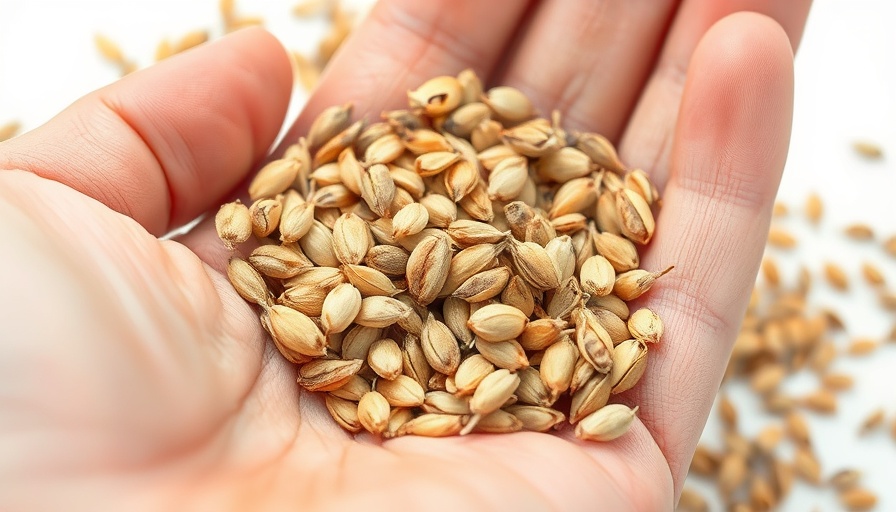
Understanding Aphids: Nature's Tiny Warriors
Aphids may be diminutive in size, but their impact in your fall garden can be significant. These tiny, sap-sucking insects come in various colors—green, red, yellow, or gray—and can weaken your plants by draining vital nutrients. Though they might seem harmless at first, an infestation can escalate quickly; adult aphids can produce up to 80 offspring in just a week. This exponential growth is particularly critical in fall when your plants are preparing for the colder months.
Essential Tips for Managing Aphids Effectively
Timing is crucial when it comes to taking a stand against these pests. By regularly inspecting your plants—at least twice a week—you can catch aphids early, which is key to keeping their numbers low. Look for the telltale signs: the bugs themselves, the honeydew they excrete (a sticky substance that can lead to black fungus on leaves), and any yellowing foliage that hints at their feeding frenzy. Armed with preventative strategies, you can safeguard your fall crops before they succumb to these pests.
Enhancing Plant Health: The First Line of Defense
A healthy plant is better equipped to fend off aphids. Ensure your garden's soil is rich in organic matter and beneficial microorganisms. Apply a balanced nutrient regimen rather than excessive nitrogen, which can encourage aphids to launch an attack. Regular watering to maintain moisture without drowning your plants is also essential; a well-hydrated garden stands a better chance against pests.
Utilizing Row Covers: Protection from Nature's Elements
As you prepare your garden for fall, consider the benefits of using row covers. These protective sheets shield your plants from harsh weather while allowing light and water to penetrate. However, ensure to vent these covers so that excess moisture doesn't lead to leaf issues. This simple measure can keep your plants warm and shielded while discouraging aphid populations from taking hold.
Practical Solutions for Long-Term Aphid Management
Beyond immediate controls, think sustainably about how to manage aphids long term. Introduce natural predators like ladybugs to your garden, as they are known to feast on aphids. You may also explore organic insecticidal soaps or neem oil that can be effectively used without harming your plants. Incorporating such methods turns your garden into an eco-friendly space where nature’s balance can thrive.
Conclusion: Gear Up for a Successful Fall Garden
Understanding how to control aphids is crucial for any homeowner looking to maintain a lush garden come fall. By taking preventative measures, such as maintaining plant health and utilizing row covers, you are setting the stage for a garden that can resist these tiny pests. Don't let aphids spoil your hard work—use these strategies to ensure a thriving fall landscape.
 Add Row
Add Row 
 Add
Add 


Write A Comment